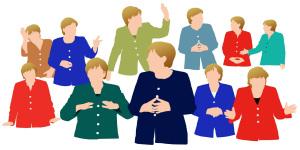 There was a great television show back in 2009-2011 called Lie to Me about a deception expert who studied body language to expose the truth behind the lies. Wouldn’t that be a great superpower to have in your next client meeting, performance review, interview or parental showdown? UCLA research has shown that only 7% of communication is based on the actual words we say. As for the rest, 38% comes from tone of voice and the remaining 55% comes from body language. Learning how to become aware of and to interpret that 55% is an advantage that we need.
There was a great television show back in 2009-2011 called Lie to Me about a deception expert who studied body language to expose the truth behind the lies. Wouldn’t that be a great superpower to have in your next client meeting, performance review, interview or parental showdown? UCLA research has shown that only 7% of communication is based on the actual words we say. As for the rest, 38% comes from tone of voice and the remaining 55% comes from body language. Learning how to become aware of and to interpret that 55% is an advantage that we need.
Well, here are some cues to look for.
- Crossed arms and legs signal resistance to your ideas. Crossed arms and legs are physical barriers that suggest the other person is not open to what you’re saying. In fact, they are unconsciously saying they are mentally, emotionally and physically blocked off.
- Real smile crinkle the eyes.People often smile to hide what they’re really thinking and feeling, so the next time you want to know if someone’s smile is genuine, look for crinkles at the corners of their eyes.
- Copying body language signals a bond.Mirroring body language is something we do unconsciously when we feel a bond with the other person. It’s a sign that the conversation is going well and that the other party is receptive to your message.
- Posture is important.Standing up straight with your shoulders back is a power position. Maintaining good posture commands respect and promotes engagement, whether you’re a leader or not.
- Eyes can lie.On average, Americans hold eye contact for seven to ten seconds, longer when we’re listening than when we’re talking. If you’re talking with someone whose stare is making you uncomforable—especially if they’re very still and unblinking—something is up and they might be lying you.
- Raised eyebrows signal discomfort.There are three main emotions that make your eyebrows go up: surprise, worry, and fear. If somebody who is talking to you raises their eyebrows and the topic isn’t one that would logically cause surprise, worry, or fear, there is something else going on.
- Lots of nodding signals anxiety.When you’re telling someone something and they nod excessively, this means that they are worried about what you think of them or that you doubt their ability to follow your instructions.
- A clenched jaw means stress.A clenched jaw, a tightened neck, or a furrowed brow are all signs of stress. The person may be anxious about the conversation or thinking about a particular thing is stressing them out.

